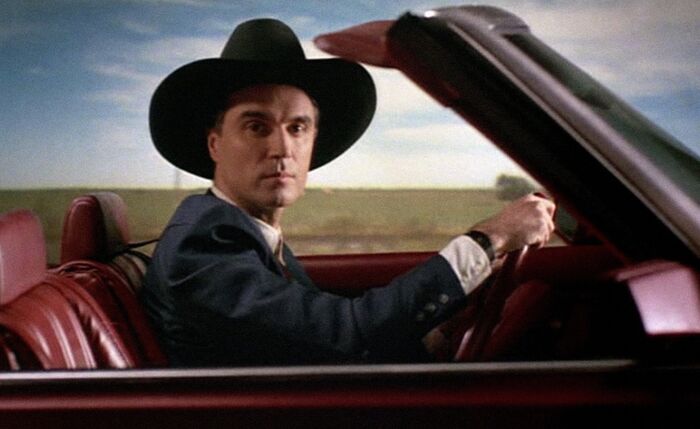The repulsive allure of Female Trouble
For a new column on cult classics, James Dickinson delves into the surreal world of this shocking yet socially astute 1974 comedy

“The world of heterosexual is a sick and boring life” philosophises Aunt Ida, an unattractive, elderly woman, spilling out of her lace-up bodysuit. And after seeing the colourful characters and devious escapades of 1974s Female Trouble, it is undeniable that this queer radicalism is exhilarating.
Director John Waters is an international treasure. Any one of the iconic auteur’s early works could be considered a cult classic, but Female Trouble takes the cake. From the bizarre early scenes of teenage bad-girl Dawn Davenport (played by the legendary drag queen Divine) hurling a 6ft Christmas tree at her mother, and a montage culminating in Dawn ripping off the bloody umbilical cord of her newborn with her teeth; you know this movie will be hard to forget.
Such shocking and surreal scenes are a signature of the director aptly known as the ‘Baron of Bad Taste’. It is precisely this bad taste that ensured the film’s ubiquity on the midnight movie circuit and its enduring cult status. But the shock tactics are not without warrant. Waters explores seemingly highbrow concepts in the lowest possible way, mocking the distinction between ‘high’ and ‘low’ culture. It is somewhat staggering that a film featuring a drag queen rubbing a dead fish over their scantily-clad body serves as the inspiration for the title of Judith Butler’s feminist thesis Gender Trouble, but such is the effect of Waters’ appeal.
The bulk of the plot revolves around Dawn’s descent into increasingly wicked crimes, spurred on by two wealthy business owners. The pair is exhilarated by photographing lowlife shame and criminality under the guise of conducting a “beauty experiment” – testing their hypothesis that beauty and crime are one.
I have yet to discover any piece of media that better challenges the cult of beauty. Female Trouble parodies society’s exaltation of beauty – a clear middle finger to Keats – and pokes fun at the ridiculousness of beauty treatments by having characters eat mascara brushes and shoot liquid eyeliner into their veins. True to form, Waters escalates the subversion further in a disturbing scene where a crowd fawns over Dawn after acid is thrown in her face, making her skin bubble and burst grotesquely. Dawn is initially nervous about scarring, but the film takes yet another one of its inspired turns when her friends reassure Dawn that she is, in fact, prettier than ever. Once again, the cult of beauty is brazenly overturned, plainly showing that beauty is not just in the eye of the beholder.
Even with broader themes at play in this at times repulsive film, it is the fantastically absurd moments that solidify its cult status
Once you get over the shock factor (which will probably require a few viewings), the most striking thing about Female Trouble is how relevant it feels today. As well as musing on the concepts of beauty and art, it explores class boundaries and the particularities of oppression. An exceptionally notable scene depicts two wealthy characters deriding Dawn’s run-down neighbourhood, only to subsequently say “let’s get used to this low life, because here lies beauty.” I could not help but be reminded of the ongoing debates on gentrification and the fetishisation of the poor for aesthetic purposes. It is unfortunate that the social commentary of this film from the 1970s isn’t as far removed from today’s reality as we would like to believe.
A word of warning: not all of the film has aged as well. The use of the word 'retards' is uncomfortable and cannot be justified as the reclaiming of a slur, unlike Aunt Ida telling her son she’d be prouder of him if he were a 'fag' and escaped the monotony of living a heterosexual life. There are also references to paedophilia which lack social commentary and seem to be included purely for a cheap thrill.
Ultimately, what makes this film a cult classic is the sheer fun that comes with the shock. Waters and his motley crew had a blast making this film and it shows. Even with broader themes at play in this at times repulsive film, it is the fantastically absurd moments that solidify its cult status. Whether it be a beauty salon where you must prove you’re worthy of a haircut (no customer can be an accountant), or seeing a child entertain themselves by playing ‘car crash’; the film has enough zaniness and breadth to be referenced endlessly, thereby fulfilling an essential criterion of cult films.
Waters once said that there is good bad taste and bad taste. The sheer absurdity and wrongness of Female Trouble ensure that this flick will be the best of bad taste for years to come.
 Interviews / You don’t need to peak at Cambridge, says Robin Harding31 December 2025
Interviews / You don’t need to peak at Cambridge, says Robin Harding31 December 2025 News / Unions protest handling of redundancies at Epidemiology Unit30 December 2025
News / Unions protest handling of redundancies at Epidemiology Unit30 December 2025 Comment / What happened to men at Cambridge?31 December 2025
Comment / What happened to men at Cambridge?31 December 2025 Features / ‘Treated like we’re incompetent’: ents officers on college micromanagement30 December 2025
Features / ‘Treated like we’re incompetent’: ents officers on college micromanagement30 December 2025 Theatre / We should be filming ADC productions31 December 2025
Theatre / We should be filming ADC productions31 December 2025








